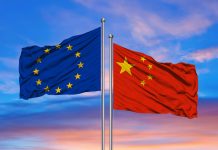-Expresses Islamabad’s desire to take bilateral ties with Iron-Brother China into new heights
-Says India will never be successful in its goal of denting Pak-China brotherhood
-Terms Hindutva as threat for regional stability under
-Hails govt’s economic, foreign policies in Joint Parliament Session
-Stresses opposition will have to acknowledge country’s progress despite its protests
-Claims government paying special attention to the rights of women Chinese companies assured full support for investment Appreciates actions taken for exiting FATF grey list
By Uzma Zafar
ISLAMABAD: President of Pakistan Dr. Arif Alvi on Monday expressed Pakistan’s firm desire to take bilateral ties with Iron-Brother China into new heights by utilizing all means available. He said this while addressing the Joint Session of Parliament, held to mark the beginning of the fourth parliamentary year of the National Assembly yesterday.
“We look at relations with China with great respect and want to strengthen them. I want to make it clear to India that it will never be successful in its goals and Pak-China friendship will keep strengthening,” he said. Furthermore, the President appreciated China’s “significant” role in Pakistan’s progress, adding that the country held its relations with China in great esteem and wanting it to touch new heights. He added that India kept trying its best to derail Pakistan’s relationship with China.
President Alvi added that the open sale of uranium in India was a cause of concern and that he condemned the ‘fascist’ policies of the Modi-led BJP government in the country. He said the Indian government was involved in various human rights violations in Indian Illegally Occupied Jammu and Kashmir (IIOJK).
Alvi began his speech by congratulating the members of parliament on the start of the new legislative year, and expressed the wish that democratic values and “tradition of tolerance” flourished in Pakistan. Talking about the economic challenges last year, the president noted that world economies shrank due to the negative consequences of the Covid-19 pandemic, but due to the government’s prudent policies, “Pakistan’s economic performance was better compared to other countries.”
Amid loud protest by the opposition benches, the president paused to say: “Despite you making noise, you will have to accept the reality.”
He noted that in the financial year 2021-21, Pakistan’s exports increased to $25.3 billion, while the Pakistan Stock Exchange “broke all past records and became Asia’s best-performing market and world’s fourth-best”. He said overseas investors had shown confidence in government policies and business confidence had increased by 60 %. “People paying tax in such large numbers shows complete trust in govt policies,” Alvi said, congratulating the government for devising and implementing laws and procedures to address the requirements of the Financial Action Task Force.
Recounting the government’s steps to uplift the masses, he said it had given a big construction package to people from the lower segments and the Naya Pakistan Housing Programme was started. “Not only has there been speed in financial activities but also opportunities for livelihood have been created,” he added. He acknowledged the 2.77pc growth in the agriculture sector, and lauded a government initiative to provide skills training to youth under which he said 1.7 million youngsters had been provided opportunities.
The president said with the help of technologies such as cloud computing, software development and data analysis, there was a possibility of achieving faster development, while the youth could help in controlling cyber defence and security issues.
He also appreciated the government for adopting policies based on human compassion, saying human development indexes had been neglected in the past.”Because of corruption and wrong priorities, we were not only deprived of progress but also left behind the world in human development indicators,” he said, noting that in the modern age, national security was not just limited to borders and soldiers but also depended on food, education and health sectors. He mentioned a number of social protection measures introduced by the government under the umbrella of the Ehsaas programme, saying their highlight was that they focussed on humans.




